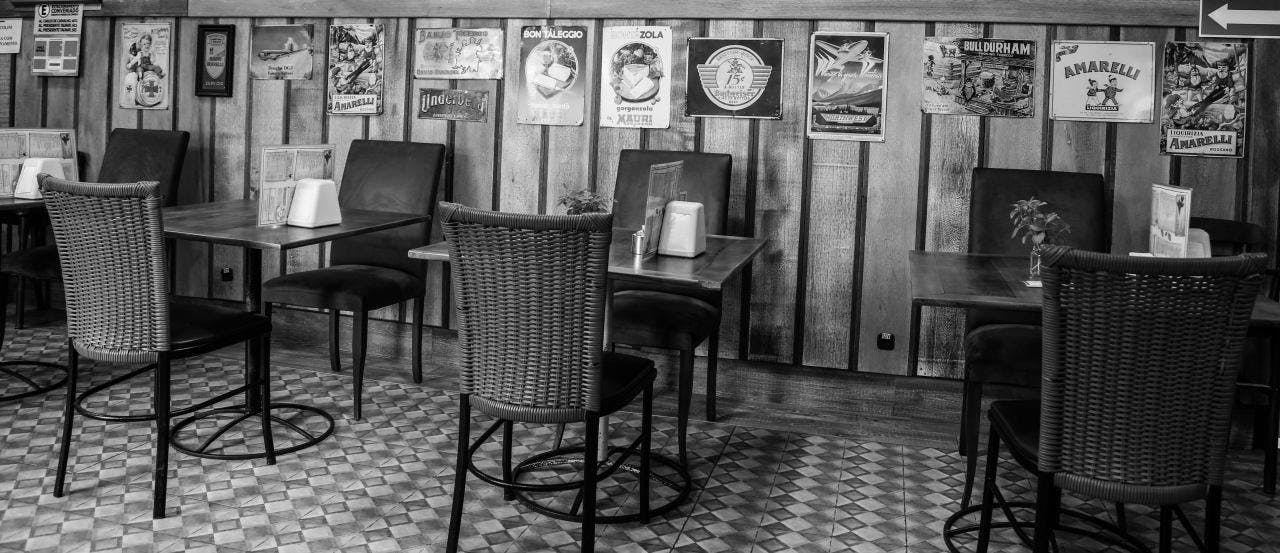Buy a Restaurant or Bar in Arizona
Why a Brokers Experience Matters When Buying a Restaurant or Bar
Buying a restaurant or bar isn’t like buying any other business—it comes with unique challenges, from liquor license transfers to lease assignments and FF&E valuation. An experienced restaurant broker brings more than just deal-making skills—they bring decades of firsthand knowledge in restaurant ownership, corporate management, and brokerage.
With this experience, a broker knows how to structure deals that get across the finish line. Whether it’s navigating landlord approvals, handling seller financing terms, or preparing the right documentation, experience ensures fewer surprises and a smoother path to closing.
For buyers, this means higher confidence, fewer delays, and ultimately, getting the deal over the finish line.
Key takeaway: When buying, choose a broker who doesn’t just list restaurants—they’ve lived the Business!
Do you dream of owning your own business? For many, the idea of buying a restaurant or bar is about more than just income — it’s about independence, creativity, and building something of your own. But buying a hospitality business is also a complex process. From finding the right opportunity to navigating financing, leases, and due diligence, it’s essential to have an experienced broker by your side.
At Arizona Restaurant & Bar Brokers, our brokers have been guiding buyers through this journey for decades. We understand the unique challenges of restaurant and bar ownership in Arizona — and we know how to match buyers with opportunities that fit their lifestyle, talents, and goals.
The Buyer’s Process: Step by Step
Initial Research
Review basic details: asking price, cash needed, income, and location. Focus on how much you’re able to invest up front — not just the total asking price. BEFORE GETTING DETAILED INFORMATION INCLUDING THE NAME AND LOCATION OF THE BUSINESS WE WILL REQUIRE YOU TO COMPLETE A NONDISCLOSURE AGREEMENT. THIS IS A STANDARD PROCEDURE IN BUSINESS SALES.Visit the Business
See the location, walk through as a customer and always respect confidentiality as employees do not know that the business is for sale. Try to get a feel for the space. Does it feel right for you? What would you do to improve, make it better and put your mark on the business?Buyer / Seller Meeting
If you like what you see, we will set up a time for you to tour the kitchen and talk with the owner. Typically this is done after hours to we can talk freely. Feel free to discuss the operations, just don't talk price with the seller, you will discuss that with your broker after the meeting and save that for contract negotiations. Unlike buying a house, you will be working closely with the seller throughout the process once you have a signed purchase agreement in place.
Ask Key Questions
What’s the rent? How long is the lease? How consistent are sales? Are the numbers supportable?Make an Offer
Once your preliminary questions are answered, it’s time to structure an offer — always contingent on verifying the information provided. We will include contingencies of the purchase such as review of lease, approval of landlord, possibly inspection periods, books and records review, franchisor approvals and financing approvals. It’s also the time to negotiate a transition period with the seller so you’re not stepping in alone on day one.Escrow & Due Diligence
If your offer is accepted, we will "open escrow" . You will be required to deposit the agreed upon earnest money from the purchase agreement. This deposit is refundable during and up to the end date of due diligence if contingencies in the purchase agreement are not met.Due Diligence is your deep dive into the financials, lease, equipment, and operations. Once you are satisfied and ready to move forward, the last thing we will do is reach out to the Landlord for approval.
Landlord Approval This is a critical step in the buying process. We will reach out to the Landlord on your behalf and see what information they will require to transfer the lease to you. This is called a lease assignment. The rights and interest the current owner has in the lease will be transferred to you. Landlords are all different, but typically they will require a personal financial statement showing all of your assets and liabilities and net worth, a resume showing related industry ownership or management experiences and a business overview if the concept will be changing. Some landlords have their own application processes and most require credit checks as well.
Close & Transition
Once contingencies are cleared and the landlord approves the assignment and delivers the assignment documents, escrow closes (you sign all the documents either in person or remotely, this is a joyous yet stressful time for you as you are now the owner of the business!). Many sellers remain for a training period to ensure a smoother handoff.
Insider Tips for Buyers
Financing is Different: Traditional SBA and bank loans are rare in restaurant deals. Most involve cash sales or seller financing (“owner carry” where the seller acts as the bank) — so be prepared with cash for your down payment.
Expect Negotiation: Restaurants often sell for 15–25% less than the original asking price. Terms are negotiable.
Don’t Chase “Unreported Cash”: Only consider documented income. Any claims about “skimming” are unreliable — and illegal. THERE ARE ONLY 2 WAYS TO VALUE A RESTAURANT. WITH GOOD BOOKS AND RECORDS AND MATCHING TAX RETURNS WHERE INCOME IS PROVABLE OVER TIME, THE BUSINESS CAN BE VALUED AS A MULTIPLE OF IT'S DISCRESIONARY CASH FLOW. In Arizona, the standard multiple for valuing a restaurant using Seller’s Discretionary Earnings (SDE)—also known as discretionary cash flow—is approximately 2.4× SDE, based on BizBuySell’s analysis of listings in the state. Specifically, SDE multiples for Arizona restaurants range from 1.65× to 3.01×, with the median at 2.40× KEEP IN MIND THIS IS FOR VALUING AND LISTING, THE ACTUAL SALES PRICE MAY BE LOWER.
Ask for Training: Always negotiate a transition period where the seller stays on to teach you the business.
Questions to Ask Yourself Before Buying
Am I financially and emotionally ready to commit?
Is my family supportive of this lifestyle change?
Am I open to different concepts, or locked into one idea?
Do I have realistic expectations about income and investment?
Can I take the “leap of faith” that all business ownership requires?
The Bottom line
Owning a restaurant or bar is not for everyone — but for the right buyer, it can be life-changing. It’s about independence, creativity, and building a community hub where your vision comes to life. There are no guarantees, but with hard work and the right opportunity, the rewards can be tremendous.
At Arizona Restaurant & Bar Brokers, we’ll help you cut through the noise, evaluate real opportunities, and guide you from first look the closing day.
Buyer FAQ
Why should I buy a restaurant instead of starting one from scratch?
Starting a restaurant from the ground up can cost hundreds of thousands of dollars in build-out, permits, and equipment. Costly delays can add up. Buying an existing business gives you a proven location, working equipment, and (in many cases) an established customer base — all for a fraction of the cost.
What is “key money” or "asset sales" and why do restaurants sell for it?
“Key money” refers to the price you pay for the existing build-out, equipment, and the lease. In most cases, you’re buying the opportunity to take over a fully built restaurant space rather than starting with a raw shell. This can save you significant time and money. If a business is losing money or can't prove their discretionary cash flow, then the business becomes an "asset type sale". This means we are not valuing the business based on provable cash flow.
Can I get SBA or bank financing to buy a restaurant?
Traditional financing is rare. Most deals are structured with seller financing (owner carry) or cash. Buyers should be prepared with a down payment and the ability to negotiate terms directly with the seller.
What is due diligence and why is it important?
Due diligence is the process of verifying financial records, leases, equipment, and operations before closing. This step ensures you know exactly what you’re buying and gives you confidence moving forward.
What’s included when I buy a restaurant?
In most cases, you’re buying the furniture, fixtures, equipment (FF&E), goodwill, and lease rights. Inventory is typically handled separately at cost. Every deal is unique, but your broker will ensure you know exactly what’s included.
How long does it take to buy a restaurant?
The average timeframe is 30 to 60 days, depending on lease assignments, liquor license transfers, and due diligence. We work to keep the process smooth and efficient. If the transaction is purely an asset sale, we can typically close as quickly as a landlord can give permission for a lease assignment.
Will the seller train me?
Yes. Most deals include a period of training and transistion at no charge. Additional time can often be negotiated as a paid consulting arrangement.
What’s the first step if I want to buy?
Register with us as a buyer. We’ll learn about your goals, budget, and experience so we can match you with the right opportunities — many of which are confidential and not advertised publicly.


